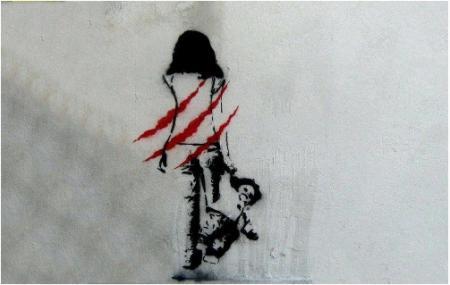
The Majlis passed a law on children’s right in 2002 comprising 9 articles which criminalized child maltreatment. However the law sounded inefficient due to lack of clarity in the law and ineffective legislative strategies which prompted the parliamentarians to start to revise the law in 2006. In 2009 a bill on children’s right including 54 articles was proposed to the cabinet. A year later the bill was submitted to the parliament with its articles decreased to 49.
And now after years of hesitation the general outlines of the bill was approved on July 24 and the parliament members are now discussing the details of the law with 51 articles.
World Health Organization (WHO) explains that child maltreatment is the abuse and neglect that occurs to children under 18 years of age. It includes all types of physical and/or emotional ill-treatment, sexual abuse, neglect, negligence and commercial or other exploitation, which results in actual or potential harm to the child’s health, survival, development or dignity in the context of a relationship of responsibility, trust or power. Exposure to intimate partner violence is also sometimes included as a form of child maltreatment.
The problem is global. Child maltreatment is complex and is not easy to study.
Child maltreatment consequences can be catastrophic both for the children and the country. Child maltreatment can bring suffering to children and families and can have long-term consequences. Maltreatment results in stress that is associated with disruption in early brain development. Extreme stress can impair the development of the nervous and immune systems. Consequently, as adults, maltreated children are at increased risk for behavioral, physical and mental health problems including: perpetrating or being a victim of violence, depression, smoking, obesity, high-risk sexual behaviors, unintended pregnancy, and alcohol and drug misuse.
And these behavioral and mental health consequences can contribute to heart disease, cancer, suicide and sexually transmitted infections. And beyond the health and social consequences of child maltreatment, there is an economic impact, including costs of hospitalization, mental health treatment, child welfare, and longer-term health costs.
Adopting restrictive laws to criminalize child abuse, tasking different bodies and organizations to protect children who were victims of maltreatment, and handing out fitting punishment for child maltreatment are certainly necessary and should the legislative body and the judiciary as well as other organizations such as Ministry of Education, Ministry of Health and the Welfare Organization succeed in implementing the law and fulfilling their responsibilities it can greatly deter the violators from abusing the children.
However, preventing child abuse along with timely recognition of abusive behaviors and injuries must also become an issue. Many cases of child abuse will never be reported and the victims will carry the scars forever. This is while the law is primarily concerned with meting out the punishment.
The children are extremely vulnerable and are the least powerful to protect themselves. Parents as the main guardians of the children are the first people who
should be trained to learn parenting skills. Improving parents’ child-rearing skills, increasing their knowledge of child development, and encouraging positive child management strategies can have promising effects on curbing child maltreatment. Parents should teach their children that it is their job to protect them.
While parents are mainly in charge of the children’s mental and physical health they can be ones who abuse their children.
Programs to prevent child abuse which could be delivered at schools can also help a great deal. Teaching children how to say “no”, how to recognize an abusive situation and also disclosing abuse to a trusted adult can also prevent maltreatment.
And there are labor children who have no parents and are being sexually or economically exploited and this is where the responsible bodies should play a bigger role. Allocating generous budget to both governmental and nongovernmental organization and granting them with official authorization will certainly set the scene for protecting these helpless children.
Creating and sustaining safe environments for children will guarantee a better future for all societies.
